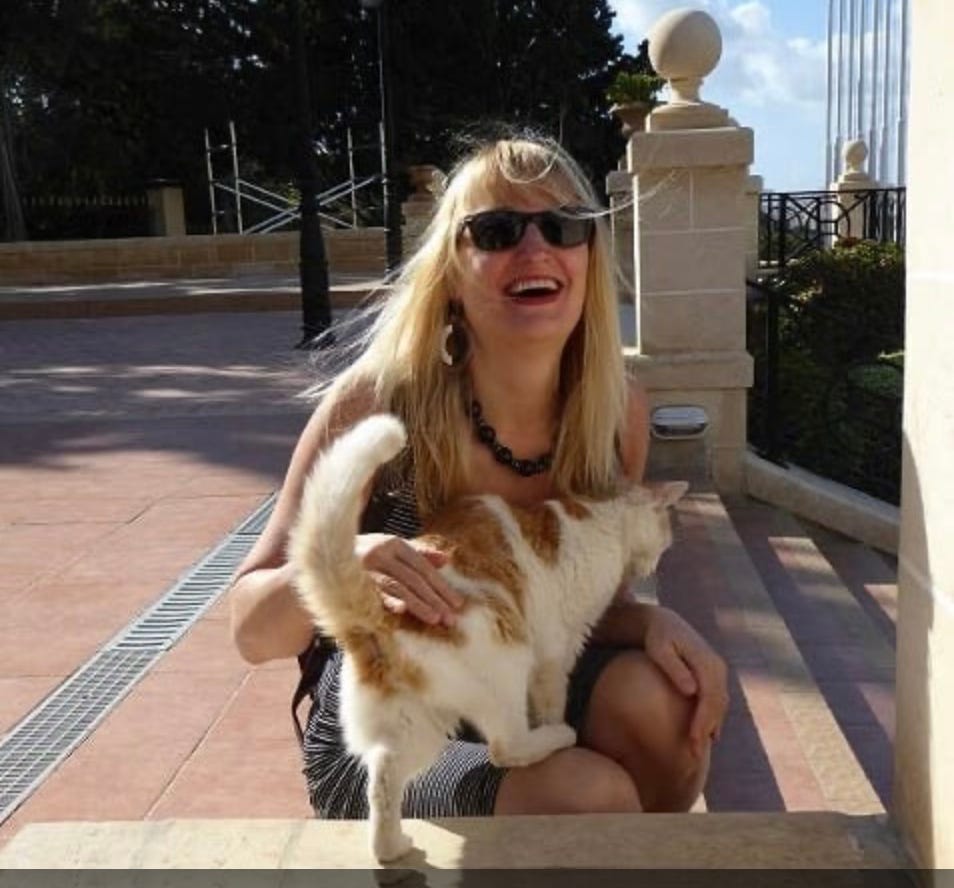
is a poet, novelist, and scholar. Her critically acclaimed verse novel The Marlowe Papers (2012), a fictional reimagining of the life of Christopher Marlowe longlisted for the Women’s Fiction Prize, was the winner of the Desmond Elliott Prize and joint winner of the Author’s Club Best First Novel Award. Her second novel Devotion (2015) was shortlisted for the Royal Society of Literature's Encore Award. Her collections of poetry include How Things Are on Thursday (2004) and Material (2008), a Poetry Book Society recommendation. Her poems have appeared in numerous anthologies including Faber’s Poems of the Decade (2012) and Penguin’s The Poetry of Sex (2014), as well as being set texts on the UK 'A' Level exam syllabus. For a more personal introduction, go here.
1. Why Substack?
It's where all the cool people come to play!
Real answer: Substack has been building mass for a while, like a planet gathering material post Big Bang; it's got a compelling centre of gravity. I started noticing it in 2021 when one or two writers I was subscribed to moved here. I even set up a baby account here for one of my esoteric interests, but only posted once or twice a year. I wish I had brought my main mailing list over sooner, now I know what I know. But things happen when the time is right.
I made the move from Mailchimp to Substack for what was then a "newsletter" in January 2024, mainly because a colleague in a charity I'm involved with got me more interested in it, while she was pitching the trustees to move our newsletter into this space. So that was the real "why". But I'd also been experimenting with a few longer form posts on Facebook that were more about the evolutionary moment we're in, and what personal development has to do with it. These things were never going to work as Mailchimp newsletters or Facebook posts, but I could see they might work on Substack.
2. How long did it take you to find your groove?
A couple of months. At the beginning of March 2024, I made a commitment to start posting weekly and realised I really enjoyed it (unlike the Mailchimp newsletter). I felt a huge surge of energy behind the writing. I was playing with humour, even satire, trying modes of communication that had been dormant for a while, or reserved for witty email exchanges with my closest friends. I could also be as serious or philosophical as I felt like being. There's a real intimacy here; the sense of an engaged, intelligent community of readers was really invigorating. Especially after too many years in the depressing, brain-bashing parts of the internet. It felt incredibly freeing, and real conversations were kicking off in the comments. Once I started posting weekly, growth really took off. Not long after that I posted the first of my Notes to go properly viral, simply expressing my excitement about the platform and comparing it to "one of those cool bookshops with sofas and cake" and I started to see this was a place where I could really build that damn "platform" publishers are always banging on about.
3. How has it changed you?
My belief in the fundamental goodness of people has been restored. After too many years on short form social media, I'd begun to believe that I was swimming in an ocean of idiots (everyone I know personally excepted), and this seemed a hopeless world in which to write thought-provoking, emotionally cognisant, well-crafted words. I couldn't meet the needs of those other platforms, which demanded memes, hot takes, clickbait, and outrage. I was drowning in the shallows. Where were the people interested in advancing human civilisation? It turns out they're here, and they're coalescing into supportive communities. This gives me an enormous amount of hope which previously felt only 'theoretical'!
The other way in which it's changed me is that it's taken away my fear of being openly myself, especially in talking about some of the metaphysical stuff I've been experiencing and exploring for the last 18 years. True, my posts about the weirder edge of consciousness research get somewhat lower engagement. I try to ground it in science and lace it with humour to make it more palatable, but yes, I get it, it's weird. I don't think I'd be saying any of this stuff in public if it weren't for Substack, so that's a big change: it has given me courage.
Hope and courage—that's not a bad haul! I should do one of those 'haul' videos on Instagram, but there's nothing to unbox.
4. What mistakes have you made?
I made a big mistake on my 'other' Substack, which I keep under a separate identity from my main one. This is my esoteric-subject-matter Substack, which I began halfheartedly in 2021. When I got active with my main mailing list on Substack in 2024, I picked up that one, too, and started running with it—but the equivalent of running with scissors.
If you're going to write about living people, it helps to understand defamation law. I didn't, and ended up in an expensive lawsuit that could have been much worse. I settled via an apology at High Court in London, which all felt a bit much for a Substack which had, at the time, about 300 readers. I was saved from financial ruin by a couple of hundred very kind and generous people who contributed to my crowdfunder. Know your defamation law, my friends, and be careful out there!
5. To pay or not to pay?
I have a few paid subscriptions to other Substackers whose work I want to support, and when it comes to me, it's a bit of both.
I'm here for growth, and that means I'm offering all my best writing absolutely free. But I also need to eat and pay my bills, and since I was made redundant from my creative writing lecturing job in July, this has become a bit more critical (I have been the sole breadwinner for my family for 21 years and counting, so losing my main income was a bit of blow!). The publishing industry is fully into BookTok sensations and celebrity crushes, and more risk-averse than ever, so it's not quite as easy making a living from writing as it might have been in the past. Substack is a game changer, and honestly the first time for me that I've felt I could create a viable income that is purely in my control.
I've tried a few different things as thankyous/incentives for my paid subscribers and have settled this year on offering writing challenges, where I support people writing memoir, whether that's for personal development reasons (it's very healing!) or towards publication. My most successful pieces have been memoir, and I used to teach Life Writing at Goldsmiths alongside Blake Morrison, so this makes sense. I'm offering my skills as a writer and creative writing tutor (25+ years) and folding in some of my background as a therapist who is passionate about personal growth. We're halfway through the Writing Home challenge as I write these answers, and it's going okay. I managed to pay about 70% of my mortgage via Substack income this month so I will keep chipping away at my various income streams and hope to somehow stay afloat!
6. What artistic and technical choices have you made?
Early on, I decided that sticking to the advised 1,000 words wasn't working for me. If a piece needs to be longer, I make it longer. I edit fairly ruthlessly, and I trust that as long as I grab the reader's attention and don't commit the cardinal sin of being boring, it doesn't matter if it's 2,000 words or so.
I've changed the name of my substack three times. When I arrived, it was carrying the name of my Mailchimp newsletter, "News from the Keyboard". Too insular, and I was no longer giving "news". So I changed it to "Writing a Better World", which it remained for most of 2024. As my focus shifted and developed this began to feel a bit woolly so at the end of the year, I stole the name of my memoir-in-progress, How to Evolve.
I decided to switch to a custom domain, howtoevolve.me. There are pros and cons to having a custom domain. One drawback is that the SEO (Search Engine Optimisation) for a custom domain isn't as good as the SEO for a Substack subdomain. I can rarely find my pieces by googling them (which I try to do sometimes as a shortcut). This is not a good sign. But I suspect I need to use the SEO settings available on Substack more deliberately, rather than accepting the default.
Another choice I've made, which has been key, has been to reply to everyone who comments, even if it's only a thank you. I don't know how sustainable this will be in the future; on those articles where it ends up with a lot of comments, it gets very time-consuming. That's writing time it's consuming, so I tend to shut down the busy ones after a while. But I want people to know that I appreciate their eyeballs, that I value their thoughts, and that there is a real human being behind the words who cares when they share similar experiences. For me, Substack is all about real human connection, and that is what makes it different.
7. What’s been the effect on your writing?
I used to blog in the Blogger days, but that was a different me. More raw, less emotionally processed. I wrote easily, but edited less; considered structure a lot less. Substack has been very different. Not least that the quality of connection and commenting (and other writing on this platform, wow!) has been so good and made me want to raise my game. So I feel I've done that. I journal daily, but writing publicly every week is transformative. Whether I'm developing material towards my memoir or writing about a recent experience, or exploring some aspect of the science/spirituality crossover that has been gathering pace for the last two decades, I'm finding new and interesting routes into non-fiction storytelling. And I'm loving it.
8. In it for the long haul?
No question. It's where I connect with writers and readers, forge new friendships and read some of the most thoughtful, moving and interesting pieces of writing on the internet. I've grown my list from 750 to over 3000 subscribers in a year, which feels incredible; why would you not hang around where you're actually appreciated! Yes, for as long as this place doesn't resort to ads and doesn't change its fundamental nature, Substack will be the home of my writing.
Subscribe to :







When I read Ros Barber I clicked the ❤️ before I read the interview because I already knew it was going to be good. And I was right! 😁
I knew about Ros as she is a subscriber of mine but I hadn't known her or much of her work here until this interview. I have now subscribed. It just shows me how many exceptional people are out there and we don't always have the time to get to know them all but they are courageously sharing their gift with the world. Thanks Ros for answering Eleanor's questions and thanks Eleanor for sharing Ros with us.